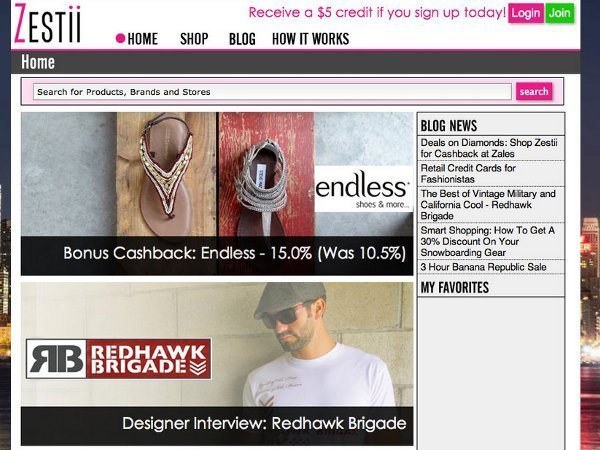 Few would argue with the basic reality that the future of the daily deals space is uncertain. Daily deal companies are here to stay, that’s for sure. But there are still a lot of glitches in the system that need to be tweaked, such as the fact that daily deal customers rarely become repeat customers, and they rarely spend more than what they paid for the deal. So bloomspot is looking to shake up the daily deal model with some critical new changes. Additionally, the company also announced Tuesday that it has secured $40 million in funding.
Few would argue with the basic reality that the future of the daily deals space is uncertain. Daily deal companies are here to stay, that’s for sure. But there are still a lot of glitches in the system that need to be tweaked, such as the fact that daily deal customers rarely become repeat customers, and they rarely spend more than what they paid for the deal. So bloomspot is looking to shake up the daily deal model with some critical new changes. Additionally, the company also announced Tuesday that it has secured $40 million in funding.
So let’s recap some of the inherent problems with the daily deal industry—problems that have led many to question Groupon’s sustainability as a business. As I mentioned earlier, loyalty is a big issue. Daily deal customers are looking for deals, not their new favorite spots. As a result, few become loyal patrons after using a daily deal voucher. They came, they saw, they saved; now onto the next deal.
This wouldn’t be so bad if many merchants didn’t take a loss on the deal in the first place. Few daily deal customers spend more than what they paid for the deal, so merchants tend to take a fairly sizable hit, since the daily deal publisher takes a cut of up to 50%, leaving the merchant to produce the goods or services at half the price or more while giving away half their revenue. It’s a pretty raw deal (ba-dum-psh!).
So bloomspot is taking a new angle on the daily deals dilemma: it’s going out on a limb to offer merchants guaranteed profits. How? By using proprietary algorithms to predict consumer spend, which allows bloomspot to assume liability for the risk. Bloomspot does this by analyzing consumer credit card data to see how much each customer spends on a deal and break it down into averages. You can see some examples here.
Additionally, the data allows merchants to see who its high rollers are and create private offers just for them.
And what do consumers get in return for having their credit cards monitored? They get special rewards in the form of discounts on their next offer as well as the chance to get exclusive offers from grateful merchants, thereby addressing the loyalty issue.
Bloomspot doesn’t say exactly how much it takes as a commission for each deal, but says it negotiates it on an individual level with each merchant partner.
To help finance these changes, bloomspot has raised $35 million in a Series B round co-led by InterWest Partners and Columbia Capital, with help from Menlo Ventures, True Ventures, QED Investors, and Harrison Metal, as well as former Expedia CEO Erik Blachford, and former Chairman of Sirius XM Radio, Gary Parsons. The company also secured $5 million in venture debt from Western Technology Investment.
“Our investment represents our belief in bloomspot’s ability to close the loop in the local offers space,” said Doug Pepper, Partner at InterWest Partners. “We believe that a performance-based model focused on merchant profitability and customer satisfaction is the next step for this industry.”


















